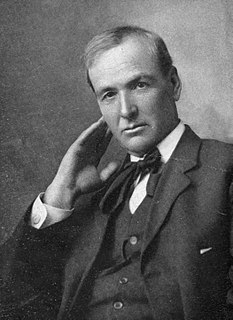A Quote by Polybius
The particular aspect of history which both attracts and benefits its readers is the examination of causes and the capacity, which is the reward of this study, to decide in each case the best policy to follow. Now in all political situations we must understand that the principle factor which makes for success or failure is the form of a state's constitution: it is from this source, as if from a fountainhead, that all designs and plans of action not only originate but reach their fulfillment.
Quote Topics
Action
Aspect
Attracts
Benefits
Best
Both
Capacity
Case
Causes
Constitution
Decide
Designs
Each
Examination
Factor
Failure
Follow
Form
Fountainhead
Fulfillment
History
Makes
Must
Now
Only
Particular
Plans
Policy
Political
Principle
Reach
Readers
Reward
Situations
Source
State
Study
Success
Success Or Failure
The Best Policy
Understand
Which
Related Quotes
If you want success badly enough, you must weigh each thought, action, and experience. The reward you reap will be the knowledge of some of history's best kept secret, which when understood and applied will truly guide you to the success in life that all have dreamed about, but only few have attained
The theory of the earth is the science which describes and explains changes that the terrestrial globe has undergone from its beginning until today, and which allows the prediction of those it shall undergo in the future. The only way to understand these changes and their causes is to study the present-day state of the globe in order to gradually reconstruct its earlier stages, and to develop probable hypotheses on its future state. Therefore, the present state of the earth is the only solid base on which the theory can rely.
To the man who is truly ethical all life is sacred, including that which from the human point of view seems lower in the scale. He makes distinctions only as each case comes before him, and under the pressure of necessity, as, for example, when it falls to him to decide which of two lives he must sacrifice in order to preserve the other. But all through this series of decisions he is conscious of acting on subjective grounds and arbitrarily, and knows that he bears the responsibility for the life which is sacrificed.
Situations in life often permit no delay; and when we cannot determine the course which is certainly best, we must follow the one which is probably the best. This frame of mind freed me also from the repentance and remorse commonly felt by those vacillating individuals who are always seeking as worthwhile things which they later judge to be bad.
The error of Socrates must be attributed to the false notion of unity from which he starts. Unity there should be, both of the family and of the state, but in some respects only. For there is a point at which a state may attain such a degree of unity as to be no longer a state, or at which, without actually ceasing to exist, it will become an inferior state, like harmony passing into unison, or rhythm which has been reduced to a single foot. The state, as I was saying, is a plurality which should be united and made into a community by education
But the wise know that foolish legislation is a rope of sand, which perishes in the twisting; that the State must follow, and notlead the character and progress of the citizen; the strongest usurper is quickly got rid of; and they only who build on Ideas, build for eternity; and that the form of government which prevails, is the expression of what cultivation exists in the population which permits it.
It is for the good of nations, and not for the emolument or aggrandizement of particular individuals, that government ought to be established, and that mankind are at the expense of supporting it. The defects of every government and constitution both as to principle and form, must, on a parity of reasoning, be as open to discussion as the defects of a law, and it is a duty which every man owes to society to point them out.
One of the commonest mistakes and one of the costliest is thinking that success is due to some genius, some magic - something or other which we do not possess. Success is generally due to holding on, and failure to letting go. You decide to learn a language, study music, take a course of reading, train yourself physically. Will it be success or failure? It depends upon how much pluck and perseverance that word decide contains. The decision that nothing can overrule, the grip that nothing can detach will bring success.
Ours is an age of criticism, to which everything must be subjected. The sacredness of religion, and the authority of legislation, are by many regarded as grounds for exemption from the examination by this tribunal, But, if they are exempted, and cannot lay claim to sincere respect, which reason accords only to that which has stood the test of a free and public examination.
Henceforth, whilst there are a great many theories and models proposed as to how, or why, magic works (based on subtle energies, animal magnetism, psychological concepts, quantum theory, mathematics or the so-called anthropomorphic principle) it is not a case that one of them is more 'true' than others, but a case of which theory or model you choose to believe in, or which theory you find most attractive. Indeed, from a Chaos Magic perspective, you can selectively believe that a particular theory or model of magical action is true only for the duration of a particular ritual or phase of work.
Conservatives . . . may decide to join the game and seek activist judges with conservative views. Should that come to pass, those who have tempted the courts to political judging will have gained nothing for themselves but will have destroyed a great and essential institution. . . . There are only two sides. Either the Constitution and statutes are law, which means their principles are known and control judges, or they are malleable texts that judges may rewrite to see that particular groups or political causes win.
In a world where success is the measure and justification of all things the figure of Him who was sentenced and crucified remains a stranger and is at best the object of pity. The world will allow itself to be subdued only by success. It is not ideas or opinions which decide, but deeds. Success alone justifies wrongs done With a frankness and off-handedness which no other earthly power could permit itself, history appeals in its own cause to the dictum that the end justifies the means The figure of the Crucified invalidates all thought which takes success for its standard.








































